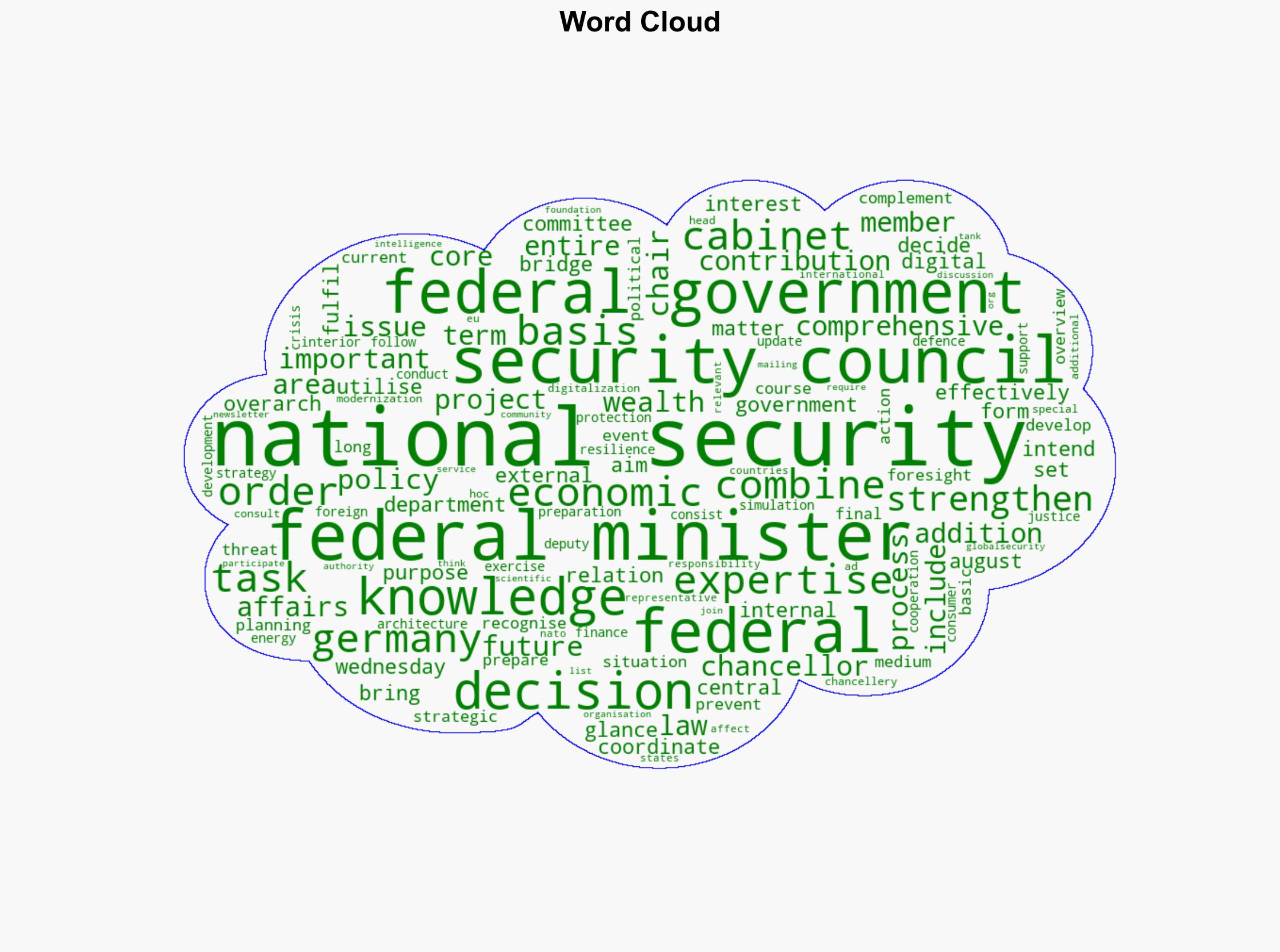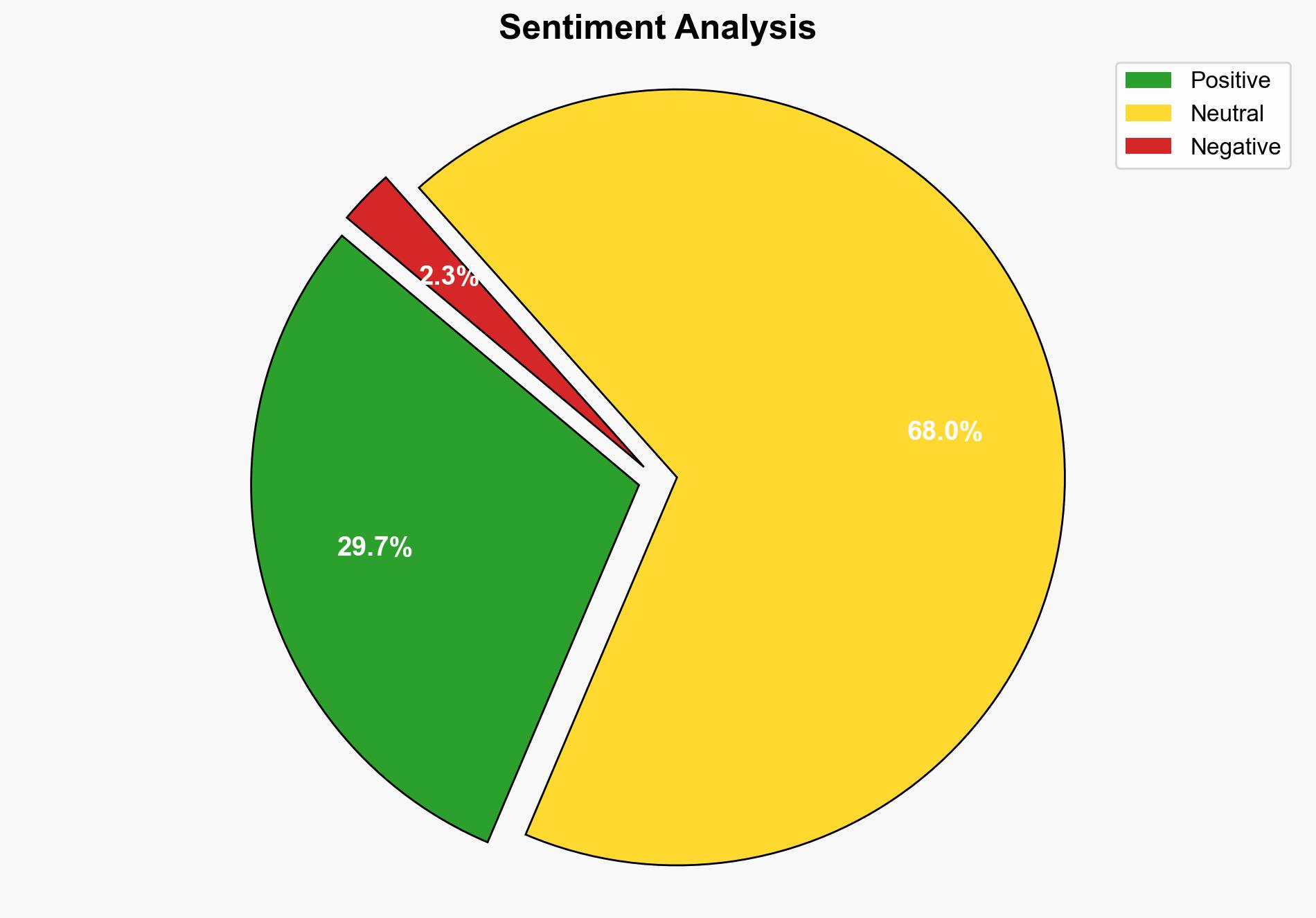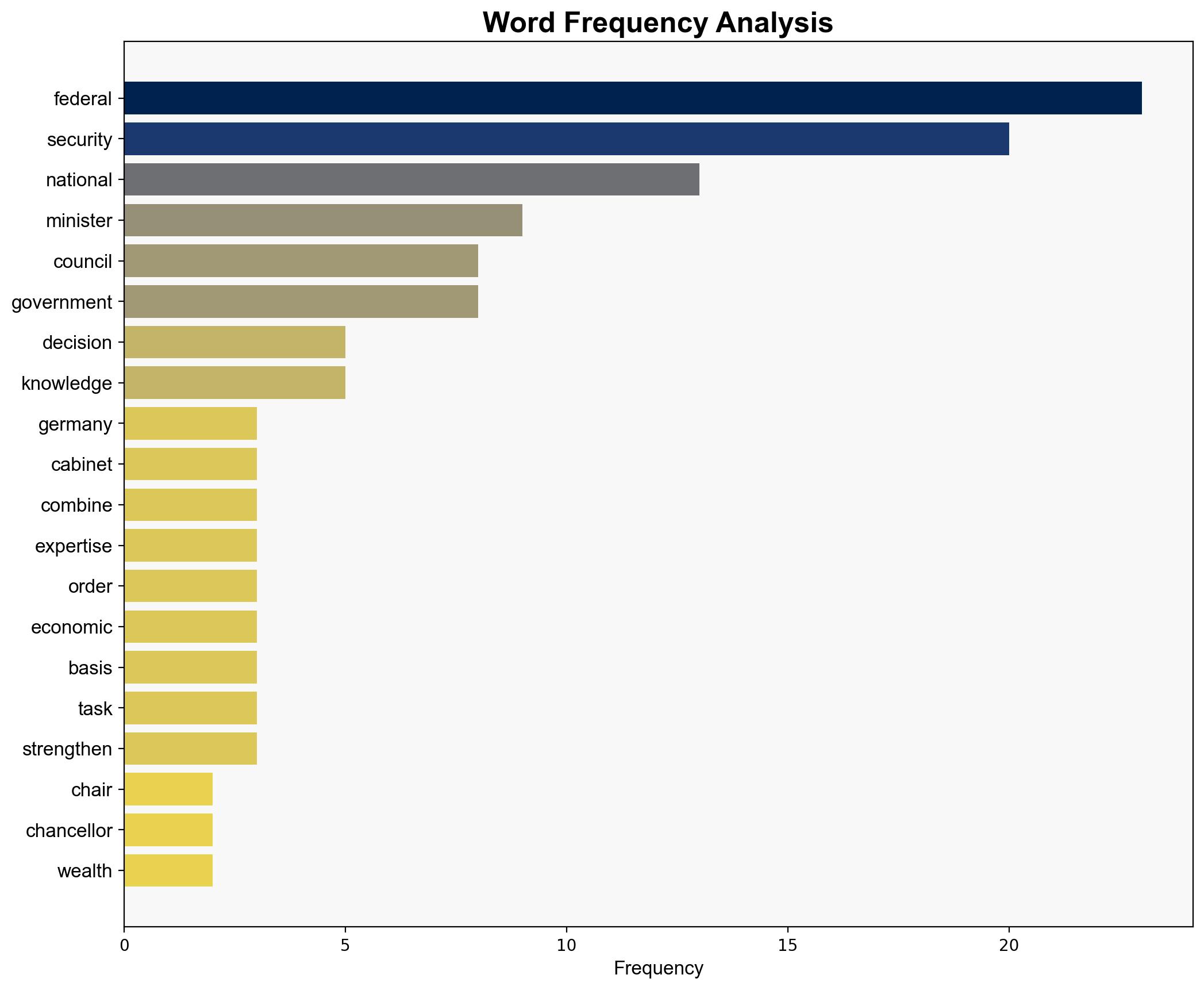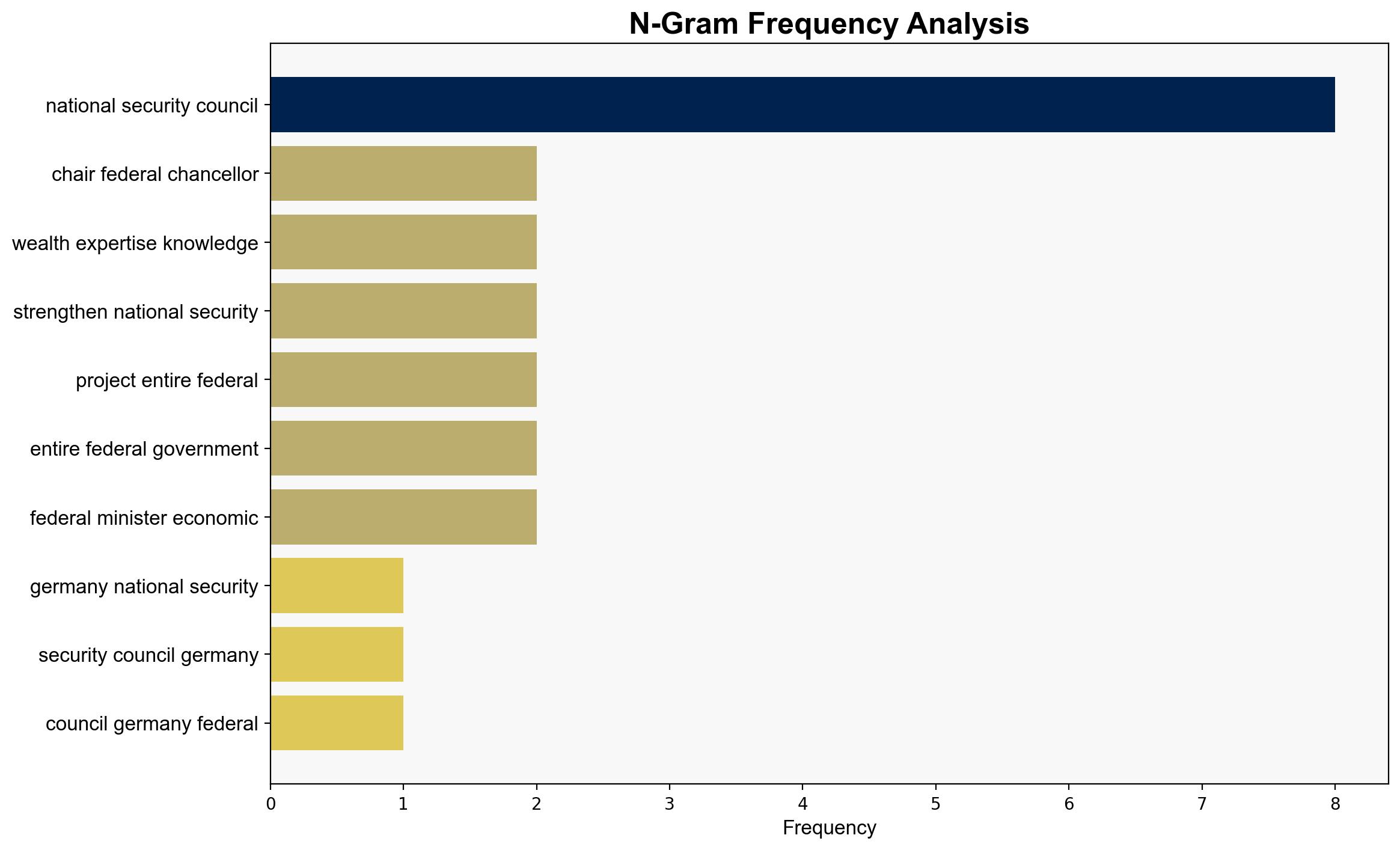Germany gets a National Security Council – Globalsecurity.org
Published on: 2025-08-29
Intelligence Report: Germany gets a National Security Council – Globalsecurity.org
1. BLUF (Bottom Line Up Front)
Germany’s establishment of a National Security Council (NSC) aims to enhance its national security architecture by centralizing decision-making and strategic foresight. The most supported hypothesis is that this move is primarily driven by a need to address complex, multi-dimensional security threats more effectively. Confidence level is moderate due to potential internal and external challenges in implementation. Recommended action includes monitoring the NSC’s integration and effectiveness in policy coordination.
2. Competing Hypotheses
Hypothesis 1: The creation of the NSC is a strategic response to evolving security threats, aiming to improve coordination and response capabilities across various government sectors.
Hypothesis 2: The NSC is primarily a political maneuver to consolidate power within the federal government, with limited impact on actual security outcomes.
Using Analysis of Competing Hypotheses (ACH), Hypothesis 1 is better supported given the explicit mention of strategic foresight, crisis simulation, and comprehensive policy integration. Hypothesis 2 lacks direct evidence but remains plausible due to potential bureaucratic inertia and political dynamics.
3. Key Assumptions and Red Flags
Assumptions:
– The NSC will effectively integrate diverse expertise and resources.
– There is a genuine commitment to enhancing national security rather than political consolidation.
Red Flags:
– Potential resistance from existing departments fearing loss of autonomy.
– Lack of clarity on how the NSC will interact with EU and NATO frameworks.
4. Implications and Strategic Risks
The establishment of the NSC could streamline Germany’s response to security threats, including cyber threats and terrorism. However, risks include bureaucratic overlap and potential conflicts with EU and NATO policies. The NSC’s success depends on its ability to foster cooperation among diverse stakeholders and adapt to rapidly changing security landscapes.
5. Recommendations and Outlook
- Monitor the NSC’s integration process and its impact on policy effectiveness.
- Engage with EU and NATO to ensure alignment and avoid policy conflicts.
- Scenario Projections:
- Best Case: The NSC enhances Germany’s security posture, leading to improved crisis management and threat mitigation.
- Worst Case: The NSC becomes a bureaucratic entity with minimal impact, leading to fragmented security responses.
- Most Likely: The NSC achieves moderate success, improving coordination but facing challenges in full integration.
6. Key Individuals and Entities
The NSC will be chaired by the Federal Chancellor, with participation from key ministers including those responsible for finance, foreign affairs, interior, justice, economic affairs, defense, and digitalization.
7. Thematic Tags
national security threats, cybersecurity, counter-terrorism, regional focus





